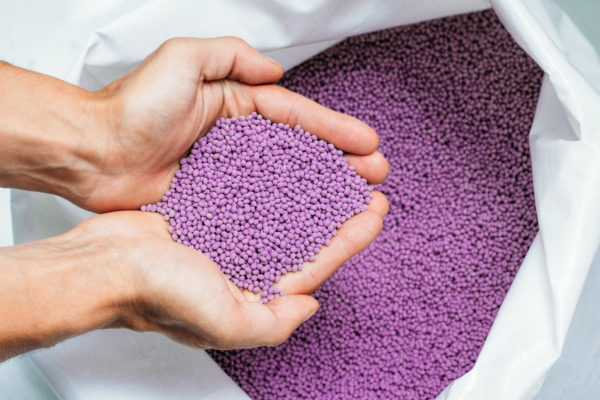Research Programs
Research Program 1: Plastics design for circularity
This program will design, develop, manufacture, and commercialise new plastic materials and products that enable greater avoidance, reuse, recycling, decomposability, and degradability – minimising waste production and creating new and profitable circular businesses, jobs and capabilities.
Priority areas of research interest identified by industry and end-users include:
- Bio-Based/Bio-Sourced Plastics
- Easy-to-Recycle Plastics
- New Plastics to Infinite Recyclability
- Malleable and Recyclable Thermosets
- Biodegradable and Compostable Plastics
- Reusable Plastics
- Plastics Demonstration Plant for Circular Economy


Research Program 2: Transforming plastic waste
This program will develop and commercialise new technologies that maximise plastic recycling and value through better sorting and separation, recycling technologies and processes optimisation creating new advanced manufacturing opportunities, regionally-based recycling infrastructure and facilities, skills and jobs.
Priority areas of research interest identified by industry and end-users include:
- Artificial Intelligence (AI) Techniques for Smart Sorting of Mixed Plastic Wastes
- Advanced Mechanical and Chemical Plastic Recycling Processes
- Upcycling Plastic Waste for High Value-Added Applications
- Transforming Plastic Waste into Synthesis Gas, Hydrogen and Synthetic Liquid Fuel
- Life Cycle Assessment (LCA) Models for Plastic Waste Management
- Standards and Specifications for Plastic Waste Derived Materials/Products
Research Program 3: Clean up and remediation of the environment
This program will develop approaches and new technologies to detect, remove and remediate plastic pollutants and to minimise further plastic waste entering the environment, thereby reducing the potential impacts of plastic pollution on human, animal and environmental health.
Priority areas of research interest identified by industry and end-users include:
- Detection of Macroplastics in Aquatic and Terrestrial Environments
- Technologies for removal of Plastics from Aquatic Environments
- Determining Microplastic Contamination in Australia’s Agricultural Land and Vegetation
- Mitigation of Plastic Pollution in Environmental Matrices
- Developing Hierarchical Assessment Tools and Novel Protocols for Evaluating Impacts and Risk of Plastic Pollution


Research Program 4: Collaborating for a circular plastics economy
This cross-cutting program will develop innovative education tools and effective engagement and collaboration across key stakeholder groups to rethink and reimagine how we develop and implement a viable and valuable circular economy for plastics in urban, regional, and remote communities.
Priority areas of research interest identified by industry and end-users include:
- Evidence-Based Decision Support Tools for Industry and Government
- Spatial Mapping of plastic material flows
- Mapping Stakeholder Innovations for Circular Collaboration
- Engagement and Behaviour Change in Urban and Regional Communities
- Enabling a Circular Economy for Plastic via Product Stewardship and Reuse
Education & Training (E&T) Program
The E&T Program is an integral component of the CRC, enabled by a collaborative network of research partners across Australia, and a cross-section of industry partners that span the entire plastics value chain.
PhD Program
At the core of the E&T Program is a unique industry focused skills program aimed at developing the capabilities of PhD graduates and postdoctoral fellows to operate across the research-practice boundary. The Industry Doctoral Program will produce graduates able to access career pathways across the circular economy for plastics, in industry, research laboratories, or in academia while also providing postdoctoral fellows with enhanced and well-rounded industry engagement experience and skills.
Industry Development
The CRC will also offer micro-credentials (MCs) for industry managers and professionals aimed at building a deeper understanding of the upstream and downstream challenges and opportunities to develop solutions for plastic waste.
The E&T Program will be a fundamental legacy of the CRC, establishing an ongoing multi-disciplinary alumni network, strengthening Australia’s circular economy research, and underpinning the skills and capabilities required in industry to develop, grow, and sustain a thriving circular economy for plastics.


